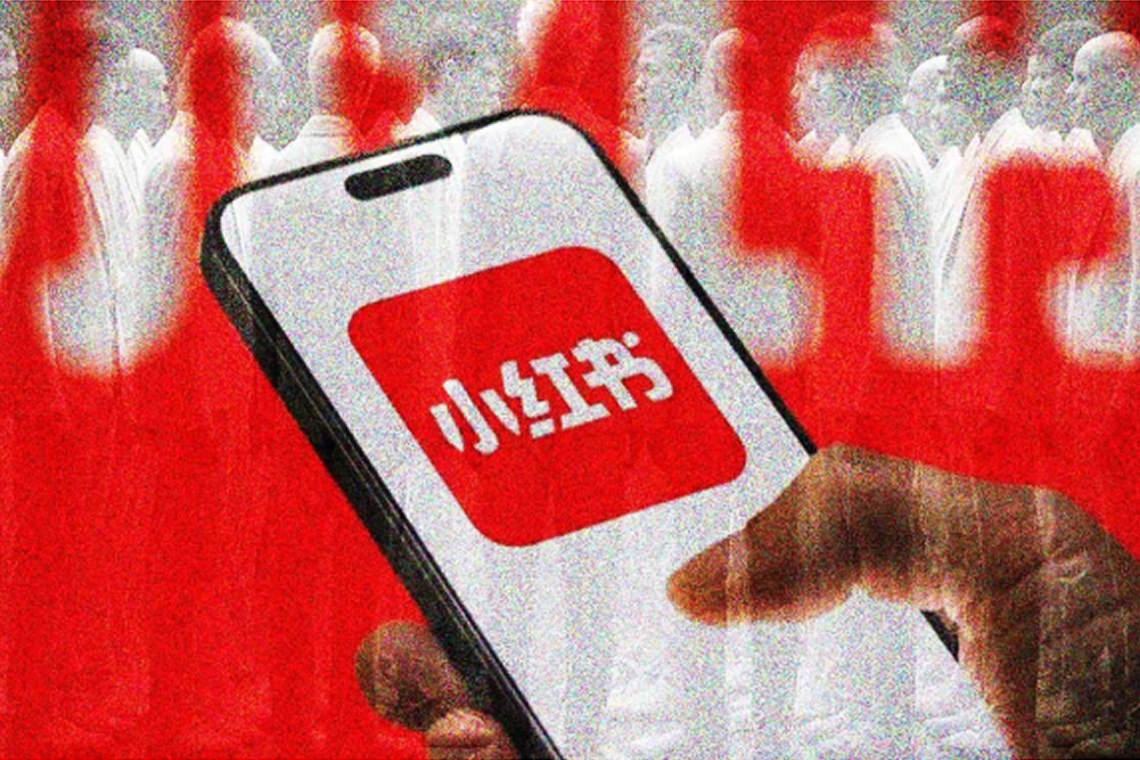TikTok Ban Looms as Americans Flock to Chinese-Owned Rednote
With a possible TikTok ban in the U.S. approaching, many American users are turning to Rednote, a Chinese-owned app that promotes communist values and enforces strict censorship laws. The irony of this shift is stark, as concerns over Chinese government influence and data security were the very reasons behind TikTok’s potential ban.
As U.S. users prepare for TikTok’s potential shutdown, alternative apps like Lemon8 (owned by TikTok’s parent company, Bytedance) and Rednote have climbed to the top of download charts. Rednote, also known as Xiaohongshu in China, translates to "Little Red Book", a name reminiscent of Mao Zedong’s famous communist text. The platform has over 300 million users and functions similarly to Instagram, with a focus on travel, beauty, and lifestyle content.
Despite its innocuous appearance, Rednote operates under strict Chinese internet regulations, unlike TikTok, which is not available in China. This means that censorship laws apply even to foreign users, leading to the removal of posts discussing sensitive topics like the Tiananmen Square massacre, Xi Jinping’s leadership, or human rights abuses.
Chinese Users React to "TikTok Refugees"
Many new American users, often calling themselves "TikTok refugees", have encountered a language barrier on Rednote, as the majority of its content is in Mandarin with no auto-translate feature. Chinese users have responded with curiosity and humor, with some posting videos titled "Hello from your new Chinese spy", while others simply request videos of American cats.
When a user from Florida asked Chinese users about their thoughts on the state, one replied, "Florida doesn’t breed boring folks," a nod to the global popularity of the "Florida Man" meme.
Censorship and Surveillance Risks
Beyond the cultural exchange, serious concerns remain about Rednote’s strict censorship policies and data privacy risks. Unlike TikTok, which has some degree of independence, Rednote operates under direct oversight of the Chinese Communist Party (CCP).
According to Human Rights in China (HRIC), the platform actively suppresses discussions critical of the Chinese government while amplifying state-aligned narratives. Additionally, Rednote’s terms of service allow access to GPS, audio, video, and even scrolling patterns, raising concerns about user surveillance.
Cybersecurity experts warn that Rednote’s data collection practices mirror those of TikTok and other social media platforms, but with an added risk due to China’s 2017 law, which mandates companies provide user data to the government upon request.
The U.S. government's efforts to protect national security by banning TikTok may be backfiring, as Americans unknowingly migrate to an even more tightly controlled platform. Cybersecurity analysts like Lucy Finlay from ThinkCyber Security and Adrianus Warmenhoven from NordVPN have raised serious concerns about the platform’s data collection and potential for government surveillance.
While American social media companies also collect massive amounts of user data, Rednote’s ties to China’s strict data-sharing laws make it a more concerning alternative. As the TikTok ban approaches, the debate over free speech, national security, and digital privacy in the U.S. is becoming more complex than ever.


